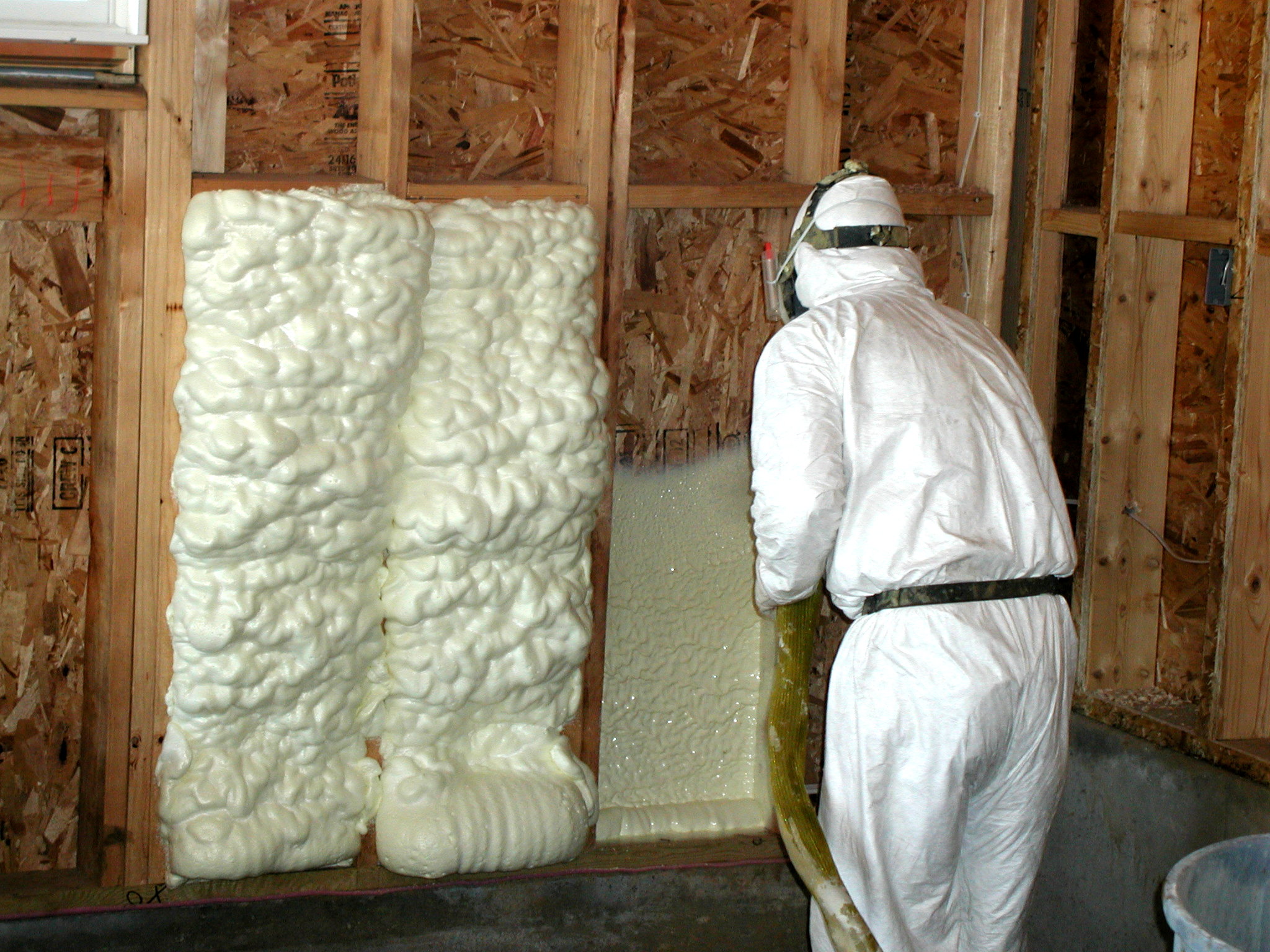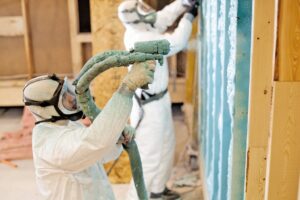
Spray foam insulation is an increasingly popular choice for commercial buildings due to its numerous benefits, including energy efficiency, durability, and ease of installation. However, there are several important considerations that property owners and facility managers should keep in mind when deciding on spray foam insulation for their buildings. This guide will explore the essential factors involved in this decision-making process, ensuring that stakeholders are well-informed and equipped to make the best choices for their properties.
Understanding Spray Foam Insulation
Spray foam insulation is a type of insulation that is applied as a liquid and expands to fill gaps and voids in walls, ceilings, and floors. It is composed of isocyanate and polyol resin, which combine to create a solid foam that provides an effective thermal barrier. The unique expanding nature of spray foam allows it to conform to any shape or surface, making it ideal for irregular or complex spaces found in many commercial buildings.
Types of Spray Foam Insulation
There are two primary types of spray foam insulation: open-cell and closed-cell.
- Open-Cell Foam: This type of foam is less dense and has a lower R-value (thermal resistance) compared to closed-cell foam. It is typically used in interior applications where sound absorption and flexibility are desired.
- Closed-Cell Foam: This denser foam has a higher R-value and is suitable for exterior applications. It provides excellent moisture resistance and is often used in areas exposed to the elements, such as roofs and walls.
Understanding the differences between these types of spray foam insulation is crucial for selecting the right option for a commercial building.
Benefits of Spray Foam Insulation
Spray foam insulation offers numerous advantages, making it a preferred choice for many commercial properties. Some of the key benefits include:
1. Energy Efficiency
One of the most significant advantages of spray foam insulation is its ability to improve energy efficiency. The airtight seal created by spray foam prevents air leaks, reducing heating and cooling costs. This efficiency translates to lower energy bills and a reduced environmental footprint for businesses.
2. Moisture Control
Closed-cell spray foam acts as a moisture barrier, preventing water infiltration that can lead to mold and mildew growth. By keeping moisture out, businesses can protect their properties and maintain a healthier indoor environment.
3. Sound Dampening
Spray foam insulation can also provide soundproofing benefits. The open-cell variant is particularly effective at absorbing sound, making it an excellent choice for offices, conference rooms, and other spaces where noise control is essential.
4. Versatility
Spray foam insulation can be applied to various surfaces, including wood, metal, and concrete. Its versatility allows it to be used in a wide range of commercial applications, from warehouses to retail spaces.
5. Longevity
Spray foam insulation is durable and can last for many years without needing replacement. Its resistance to sagging and settling ensures that it maintains its insulating properties over time.

Top Considerations for Choosing Spray Foam Insulation
When considering spray foam insulation for commercial buildings, there are several factors to keep in mind to ensure the best results.
1. Building Design and Structure
The design and structure of the building play a crucial role in determining the type of spray foam insulation needed. Complex designs may require specialized application techniques, while buildings with existing insulation may need a careful assessment to ensure compatibility.
2. Climate Considerations
The local climate significantly impacts insulation choice. In Amarillo, TX, for instance, the temperature can vary dramatically throughout the year. Closed-cell spray foam is often preferred in areas with significant temperature fluctuations, as it offers superior insulation performance and moisture resistance.
3. Professional Installation
The installation of spray foam insulation should always be performed by qualified professionals. Proper application is critical for achieving the desired energy efficiency and effectiveness. It is essential to choose a contractor with experience and expertise in commercial spray foam insulation projects.
4. Building Codes and Regulations
Before proceeding with spray foam insulation, it is vital to check local building codes and regulations. Compliance with these regulations ensures that the insulation meets safety and performance standards.
5. Budget Considerations
While spray foam insulation can provide substantial long-term savings through energy efficiency, the initial investment can be higher than other insulation options. It is important to assess the budget and consider the return on investment when making decisions about insulation.
Maintenance of Spray Foam Insulation
Once spray foam insulation is installed, minimal maintenance is required. However, regular inspections are advisable to check for any signs of damage or wear. If the foam becomes exposed to UV light, particularly with closed-cell foam, it may need protective coatings to prolong its lifespan.
Frequently Asked Questions
1. How long does spray foam insulation last?
Spray foam insulation can last for several decades when installed correctly and maintained. It is known for its durability and resistance to sagging and settling.
2. Is spray foam insulation safe for commercial buildings?
Yes, spray foam insulation is considered safe when applied by trained professionals. It is important to use products that meet industry standards and regulations to ensure safety.
3. Can spray foam insulation be installed over existing insulation?
In many cases, spray foam can be installed over existing insulation, but a professional assessment is needed to determine the best approach. This ensures compatibility and effectiveness.
4. What is the R-value of spray foam insulation?
The R-value of spray foam insulation varies based on its type. Closed-cell foam typically has an R-value of about 6 to 7 per inch, while open-cell foam has an R-value of approximately 3.5 to 4 per inch.
5. How does spray foam insulation compare to other insulation types?
Spray foam insulation often outperforms traditional insulation types such as fiberglass and cellulose in terms of energy efficiency, moisture resistance, and durability. However, the best choice depends on specific building needs and budget.
Conclusion
Spray foam insulation is a valuable investment for commercial buildings in Amarillo, TX, offering numerous benefits that enhance energy efficiency, moisture control, and durability. By considering key factors such as building design, climate, and professional installation, property owners can make informed decisions that align with their goals.
For businesses seeking top-notch spray foam insulation services in Amarillo, TX, Flatland Roofing & Insulation is ready to assist. They are dedicated to providing quality solutions tailored to meet the specific needs of each commercial property. Contact them today at (806) 606-6794 to discuss how spray foam insulation can benefit your building.
Additionally, they extend their services to nearby locations, including Dumas, Canyon, Bushland, Hereford, and Dalhart, Texas.







